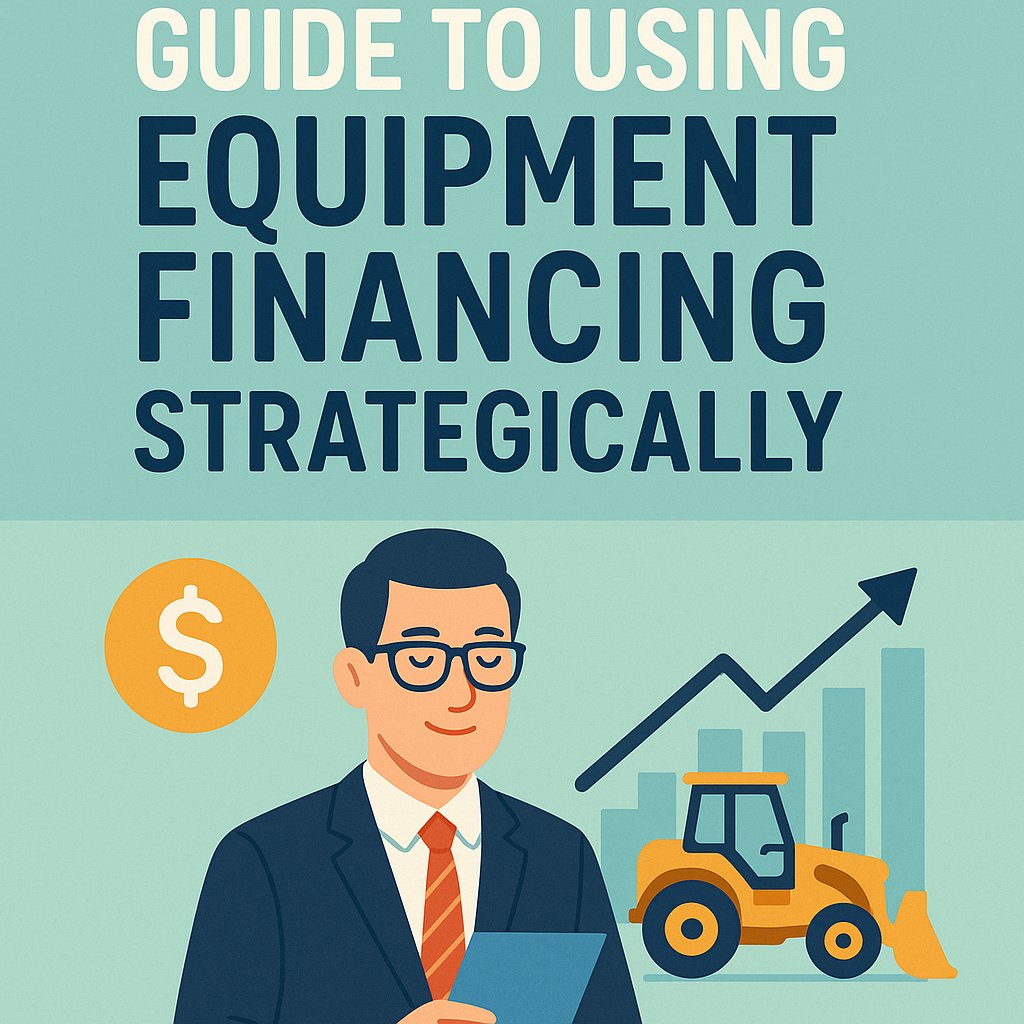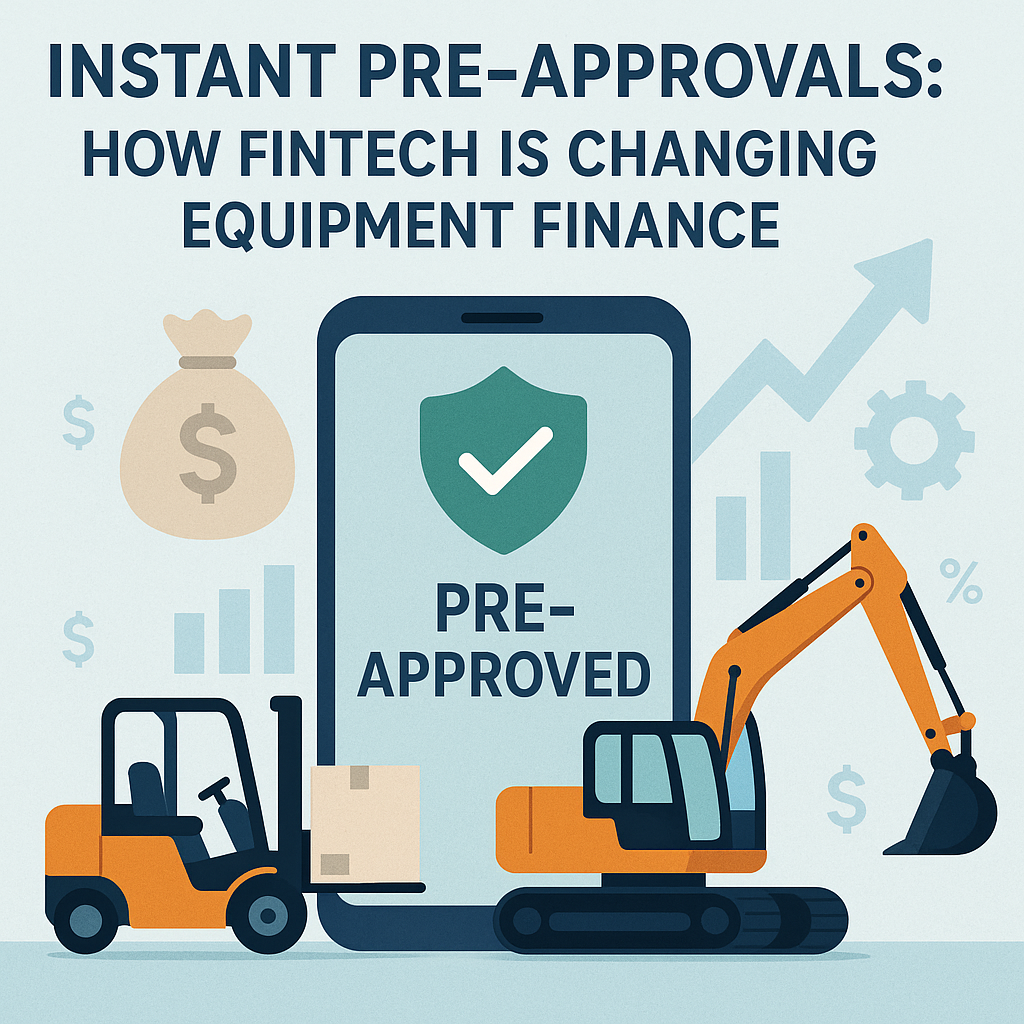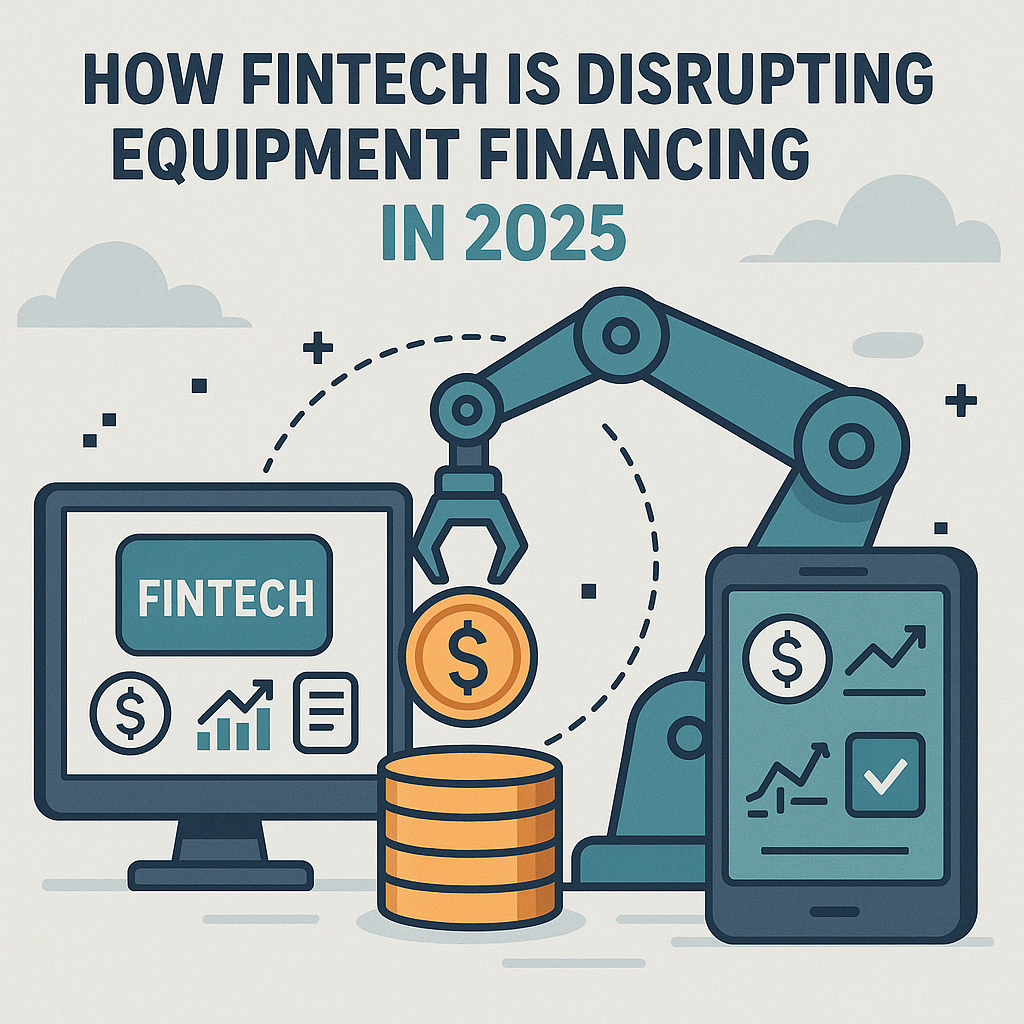How AI and Fintech Are Transforming Equipment Financing
Introduction to Equipment Financing
Equipment financing has long been a lifeline for businesses looking to acquire machinery, vehicles, and other essential tools without upfront capital. However, the traditional process—filled with paperwork, manual underwriting, and long approval times—has historically been a major bottleneck for small and medium-sized enterprises (SMEs). That’s changing fast.
Thanks to the surge in financial technology (fintech) and artificial intelligence (AI), businesses can now access smarter, faster, and more tailored financing solutions. These innovations are streamlining every step of the equipment financing journey, from application to approval, and even asset management.
Access to equipment financing for startups is crucial in the early stages, as it allows small businesses to scale operations without heavy upfront capital.
The Rise of Fintech in Lending and Leasing
Fintech has disrupted nearly every aspect of traditional banking. Originally focused on payments and peer-to-peer lending, fintech platforms are now branching into equipment leasing and financing. With digital-first infrastructures, they eliminate many of the friction points present in traditional financial systems.
For example, fintech lenders like Kapitus, Crest Capital, and Balboa Capital now offer near-instant application processes and competitive financing options that adapt to the borrower’s financial health in real-time.
Role of Artificial Intelligence in Finance
AI brings intelligent automation into the picture. It enables lenders to:
- Evaluate borrower risk more accurately by analyzing vast data sets
- Automate decisions that previously required human underwriting
- Enhance operational efficiency, reducing costs and manual error
Machine learning (ML) models are now used to predict borrower behavior, identifying default risks or optimal payment plans based on historical and behavioral data.
Data-Driven Credit Decisions
Gone are the days when credit decisions relied solely on FICO scores or outdated financial statements. AI-powered fintech platforms leverage:
- Bank transaction histories
- Accounting software integrations (like QuickBooks)
- Social and behavioral data
This approach makes financing accessible even to businesses with thin credit files or unconventional financial histories, helping democratize access to capital.
AI-Powered Asset Evaluation
A major innovation in equipment financing is AI’s role in asset evaluation. For both new and used machinery, AI tools can:
- Assess current market value
- Predict depreciation
- Estimate resale value
Some fintech platforms even use image recognition and IoT sensors to determine real-time asset health, offering financing terms that reflect actual usage rather than flat-rate depreciation schedules.
Digital Platforms for Equipment Financing
Fintech firms are building platform ecosystems that integrate directly into equipment sellers’ websites. These platforms offer:
- Instant financing offers at checkout
- Paperless agreements
- API-based integrations with vendor CRM and ERP tools
This “embedded finance” model makes it incredibly easy for buyers to secure financing without leaving the seller’s portal. Some fintech startups offering equipment financing for startups partner with firms providing IT support in Irvine to maintain operational efficiency and security.
Blockchain and Smart Contracts
Blockchain ensures immutable records, enabling secure and transparent contracts. With smart contracts, lease agreements can:
- Auto-execute upon certain conditions
- Reduce administrative burden
- Ensure compliance without manual intervention
These technologies reduce disputes, accelerate trust, and enhance transparency for both parties.
Personalized Financing Offers
AI models now tailor offers to fit the specific needs of each business. For instance:
- A seasonal farming business might get longer grace periods
- A tech startup could receive performance-based repayment terms
Many equipment financing companies for startups now use AI to offer dynamic, flexible terms tailored to early-stage business models. This level of customization ensures higher approval rates and better customer satisfaction.
Faster Approval and Funding Processes
Traditional bank loans might take weeks or months to process. Fintech platforms use AI to:
- Verify data in minutes
- Assess creditworthiness on the fly
- Disburse funds within 24 hours
This speed is particularly crucial for businesses needing urgent equipment upgrades to seize growth opportunities.
Fraud Detection and Risk Management
AI-powered systems scan for anomalies in application data, spotting potential fraud through:
- Pattern recognition
- Cross-checks with public records
- Real-time identity verification
These systems also bolster Know Your Customer (KYC) and Anti-Money Laundering (AML) protocols. AI-powered platforms rely on advanced tools used in IT support, such as real-time monitoring and automated ticketing, to ensure uninterrupted service and security.
Case Studies: Success Stories from the Industry
One notable example is Tamarack Technology, a fintech firm that integrates AI into leasing operations. After implementing AI-driven underwriting, they reported:
- 60% reduction in default rates
- 40% increase in approval efficiency
Similarly, Kabbage (now part of American Express) revolutionized small business lending with AI-backed assessments, serving over 500,000 businesses. Firms like Regions Investment Management are exploring AI-backed portfolios that include fintech-driven equipment financing solutions.
Regulatory Compliance and AI Ethics
As AI becomes more central, regulators are focusing on:
- Bias mitigation in algorithms
- Explainability of decisions
- Privacy and data security
Fintechs must tread carefully, balancing innovation with compliance to ensure fair lending practices.
Benefits for Lenders and Borrowers
For lenders:
- Lower operational costs
- Reduced default risks
- Scalable platforms for growth
For borrowers:
- Greater access to capital
- Tailored terms
- Faster approvals and transparency
Everyone wins when AI and fintech work together.
Challenges and Risks of AI in Equipment Financing
While promising, AI in fintech isn’t without risks. Key concerns include:
- Cybersecurity threats from data breaches
- Over-reliance on opaque algorithms
- Potential bias in decision-making models
Many fintech companies mitigate technical risks by using outsourced server support for scalable infrastructure management. Secure and professional server support is also essential for protecting sensitive borrower data and ensuring system uptime.
Future Trends in Fintech and Equipment Financing
Looking ahead, expect to see:
- Predictive lending using IoT data (e.g., equipment usage to predict repayment capacity)
- Real-time leasing models with dynamic pricing
- Integration with 5G, edge computing, and AIoT ecosystems
These innovations promise an even more seamless, predictive, and personalized financing experience.
FAQs
1. What is equipment financing?
Equipment financing helps businesses acquire machinery, vehicles, and tools by spreading the cost over time, rather than paying upfront.
2. How does AI impact equipment leasing?
AI improves decision-making, speeds up approvals, and reduces fraud through automation and data-driven insights.
3. Are fintech loans safer than traditional bank loans?
They can be, due to enhanced risk modeling and automated compliance, though proper due diligence is still essential.
4. Can small businesses with poor credit qualify through fintech lenders?
Yes, many fintech platforms assess alternative data and offer solutions even for those with limited credit history.
5. What is a smart contract in equipment financing?
A smart contract is a self-executing agreement with terms directly written into code, used to automate leasing processes.
6. How do digital platforms help equipment vendors?
Vendors can offer financing directly at checkout, improving sales and customer convenience.
Conclusion
The convergence of AI and fintech is undeniably reshaping the landscape of equipment financing. With faster approvals, smarter risk assessment, and personalized financing options, businesses of all sizes can now access capital more easily than ever before.
As this ecosystem evolves, embracing innovation while safeguarding ethics and privacy will be key to unlocking its full potential.





No comment